How to clean solar light panels? Are you a proud homeowner and garden enthusiast who knows the value of energy savings and living off-grid? If so, you’re probably already familiar with solar lights – they offer an efficient lighting solution for any outdoor space.
To clean solar light panels efficiently, start by dusting off loose debris with a soft cloth. Follow this with a gentle wipe-down using soapy water. Rinse with clean water and finally polish dry with a clean cloth. It’s as easy as pie and keeps your lights shining bright like a diamond in the night sky!
This article will explore some of the most up-to-date and efficient ways for homeowners in 2023 to effectively clean their solar panel lights regularly, get the most out of their investment, reduce their impact on the environment as well and save energy in the long run. Let’s take a look!
The Basics of Cleaning Solar Light Panels
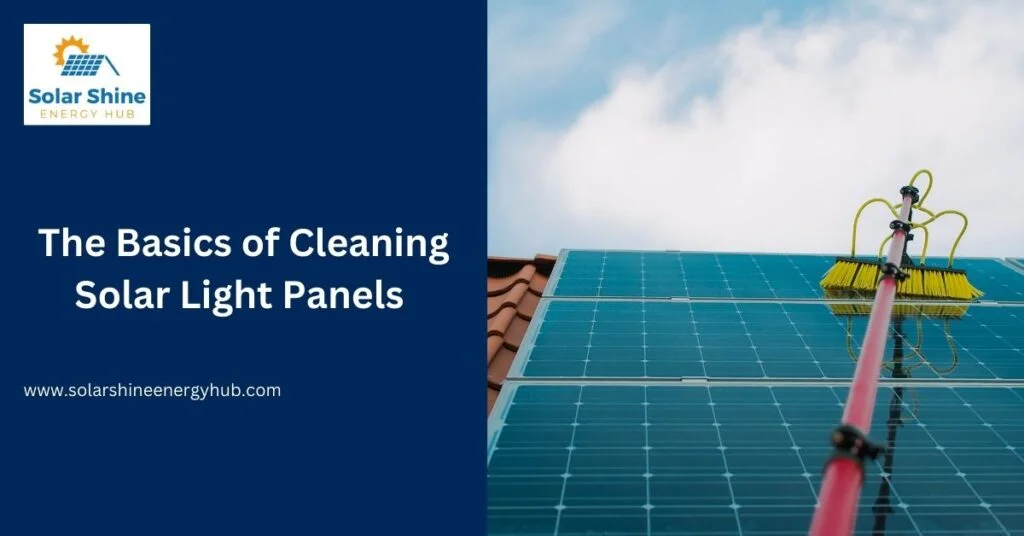
Understanding Solar Light Panels
Solar light panels operate by absorbing sunlight during the day, converting it into electricity, and storing it in a rechargeable battery for use during the night. Their efficiency directly correlates with the amount of sunlight they can absorb. Hence, keeping them clean enhances their performance and longevity.
Why Regular Cleaning is Essential
Regular cleaning is crucial to maintain the performance of solar light panels. Dust, debris, bird droppings, and other forms of dirt can accumulate on the panels over time, reducing their ability to absorb sunlight effectively. This leads to a decreased performance and shorter battery life, thus the need for regular cleaning.
Effective Cleaning Techniques
Effective cleaning doesn’t have to be a tiresome task. Most of the time, a simple wipe with a soft cloth to remove dust is enough. For stubborn stains, use warm soapy water and a non-abrasive sponge. Always remember to handle the panels gently to prevent any damage. It’s advisable to clean your solar light panels at least once every three months for consistent performance.
Supplies Checklist for an Easy and Effective Clean
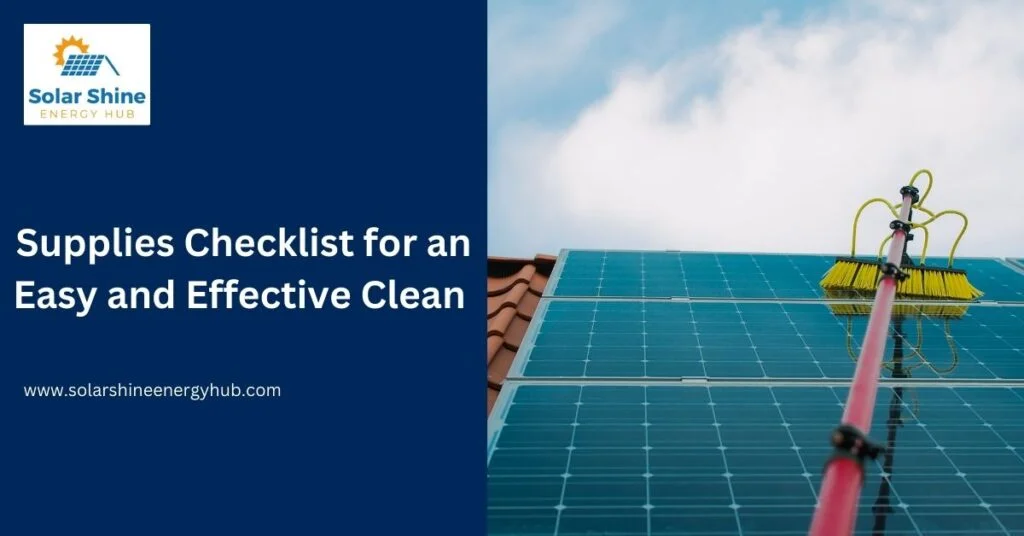
Optimal Time for Cleaning Solar Panels
For optimal results, it’s best to clean solar light panels early in the morning or late in the evening. This is because the panels are cooler, and the water or cleaning solution used will not evaporate quickly, allowing for more effective cleaning. Additionally, cleaning during these times reduces the risk of the panels getting damaged due to rapid temperature changes.
Another factor to consider when cleaning your solar light panels is the weather. Ideally, choose a cloudy day for the task. On a cloudy day, the panels will not heat up as quickly, making it easier for you to clean them more thoroughly. This also minimizes the risk of thermal shock, which can occur if cold water is applied to hot panels.
Finally, consider the frequency of cleaning. While it’s recommended to clean the panels once every three months, the actual frequency will depend on your local environment. For example, if you live in a dusty area or a place with many birds, you may need to clean your panels more frequently. Remember, the cleaner your panels, the more efficient they are.
Step-by-step Cleaning Guide for Maximum Efficiency
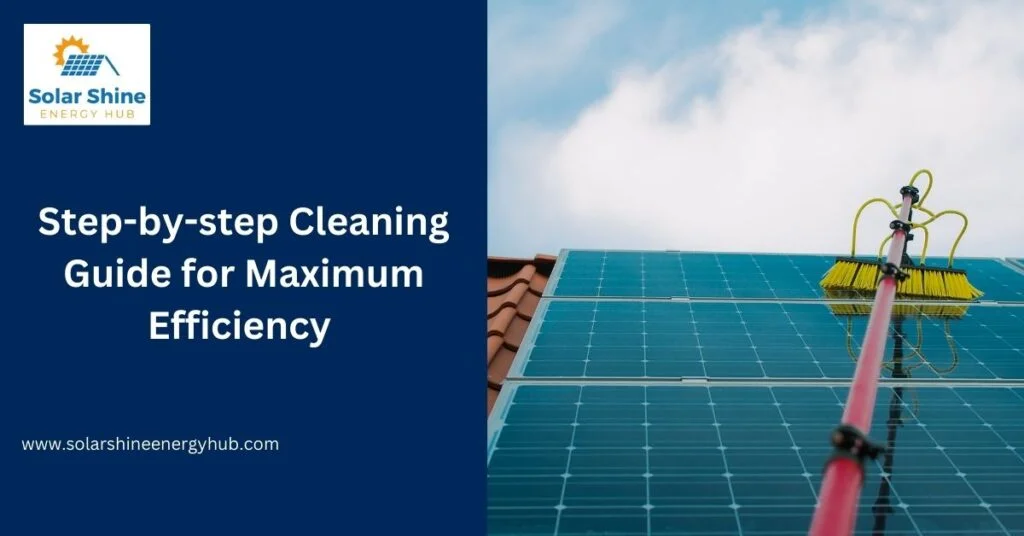
The Importance of Regular Maintenance
Regular maintenance of solar panels is crucial to prolonging their lifespan and ensuring optimal performance. A layer of dirt or dust can significantly reduce the amount of sunlight that reaches the cells, leading to reduced energy production. Therefore, it’s not just about cleanliness, but also about efficiency and sustainability.
Cleaning Techniques and Tools
When it comes to cleaning, you may use a soft brush or a non-abrasive sponge along with soapy water. For hard-to-reach panels, a long-handled wiper can be a useful tool. It’s also worth mentioning that there are professional cleaning services available that utilize specialized tools and techniques to thoroughly clean solar light panels.
Safety Measures During Cleaning
It’s paramount to consider safety while cleaning solar light panels. If your panels are located on a roof, ensure you have secure footing or use safety equipment to prevent falls. Avoid using harsh chemicals that may damage the panels and always handle them with care to prevent scratches or other damage.
Removing Hard Water Spots from Your Solar Light Panels
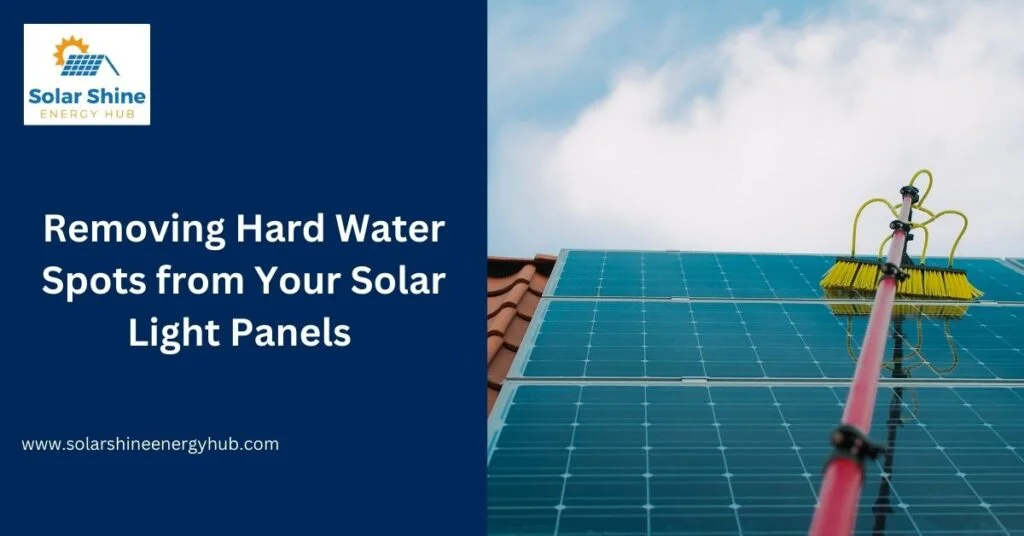
Hard water spots, primarily caused by mineral deposits, can be challenging to clean and may hinder solar light panel effectiveness. These stubborn spots are usually a result of rainfall or sprinkler water drying on the panel surface. To tackle these, a vinegar solution often works effectively.
Vinegar, a natural and non-toxic acid, can dissolve mineral deposits without causing harm to the panel surface. Mix equal parts of white vinegar and distilled water in a spray bottle, spray it on the affected area, and let it sit for about 10 minutes. Following this, use a soft brush or sponge to gently scrub the spots.
Rinse the panels with distilled water after scrubbing. Using distilled water for rinsing is crucial as it is free from the minerals commonly found in tap water, eliminating the chance of leaving new deposits. Repeat this process if necessary, until all hard water spots are removed, and remember to dry the panels with a squeegee or lint-free cloth to avoid water spots.
Tips for Keeping Your Solar Light Panels Sparkling Year-Round
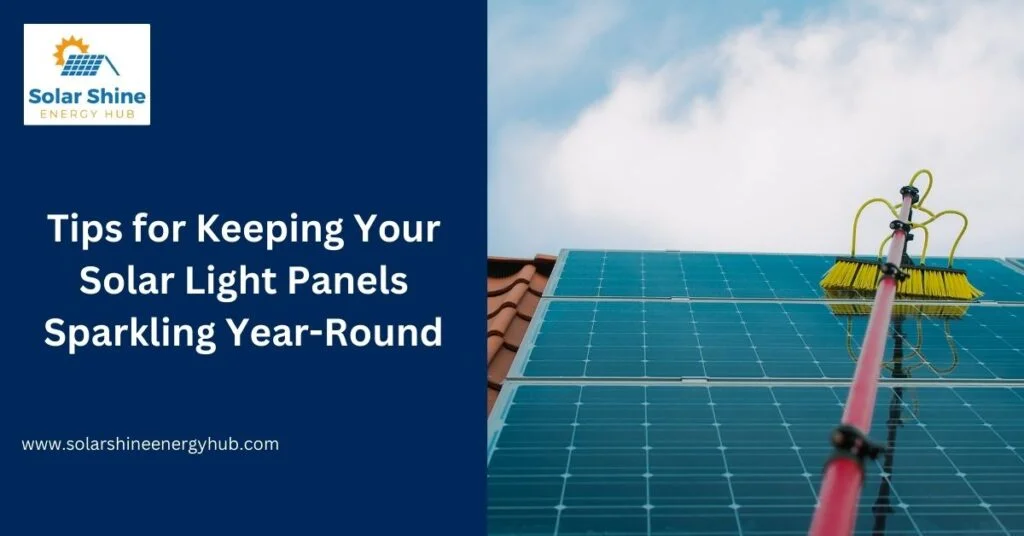
Regular Maintenance is Key
Regular maintenance of your solar light panels is essential for optimum performance. Keep a close eye on the panels’ cleanliness and check for any accumulation of dirt or debris that could potentially block sunlight. It’s recommended to schedule regular cleanings, preferably once every quarter, to ensure your solar light panels are always in top condition.
Try Automated Cleaning Tools
Consider investing in automated cleaning tools if you live in a region with heavy dust or bird droppings. These handy devices can keep your panels clean without your consistent intervention. While the initial cost might be high, the long-term benefits of maintaining peak panel performance far outweigh the expense.
Nighttime Cleaning is More Suitable
Finally, it’s advisable to clean your solar light panels during the cooler parts of the day, such as early morning or late evening. Cleaning during peak sun hours may cause rapid evaporation, leading to streaking or even the formation of hard water spots, which we want to avoid. Plus, cooler temperatures are safer for you as well.
Conclusion How to clean solar light panels?
In conclusion, the efficiency of your solar lights heavily relies on the condition of their panels. By adhering to these cleaning tips and scheduling regular maintenance, you can ensure optimal performance of your solar lights, illuminating your outdoor spaces beautifully while saving energy. Embrace the power of the sun, live sustainably, and let your garden be the beacon of light in your neighborhood! So don’t let dirty solar panels dim your outdoor space, give them the care and attention they deserve and bask in their bright glow all year round. Make solar lights a part of your eco-friendly lifestyle and reap the benefits for years to come.